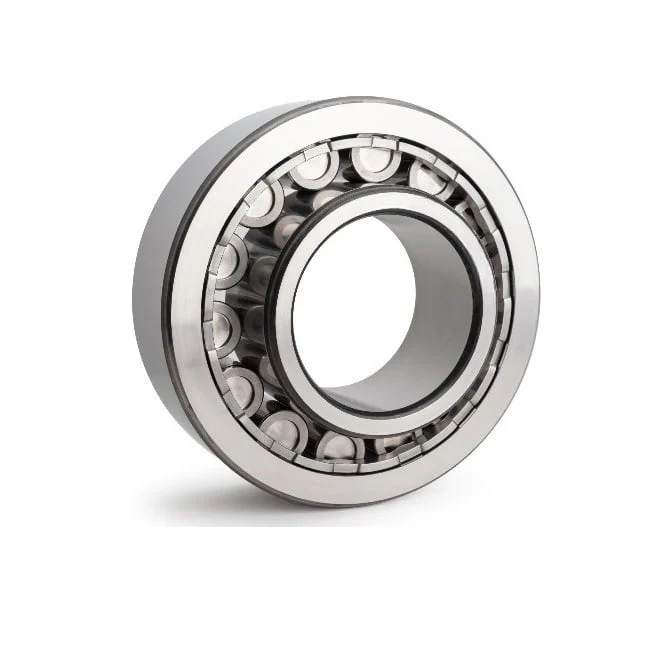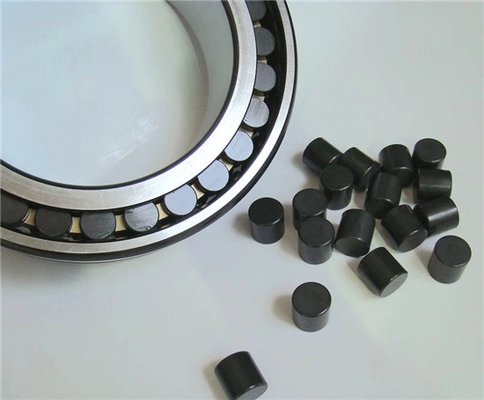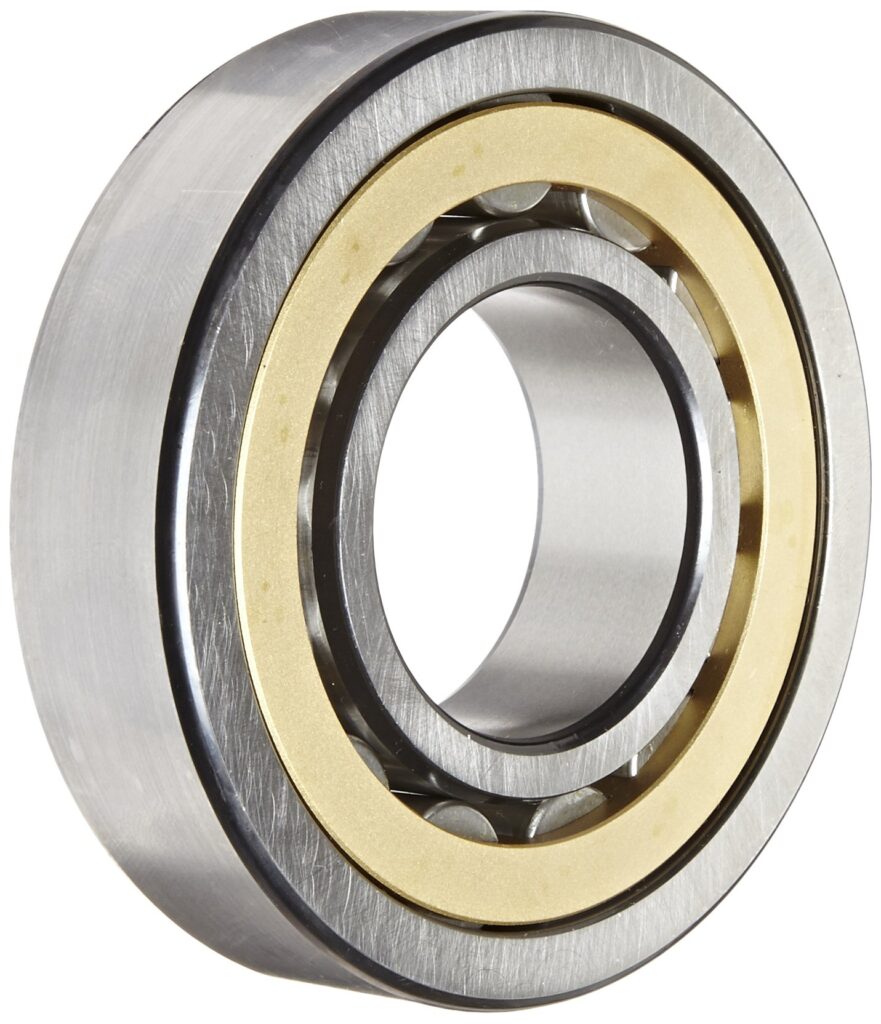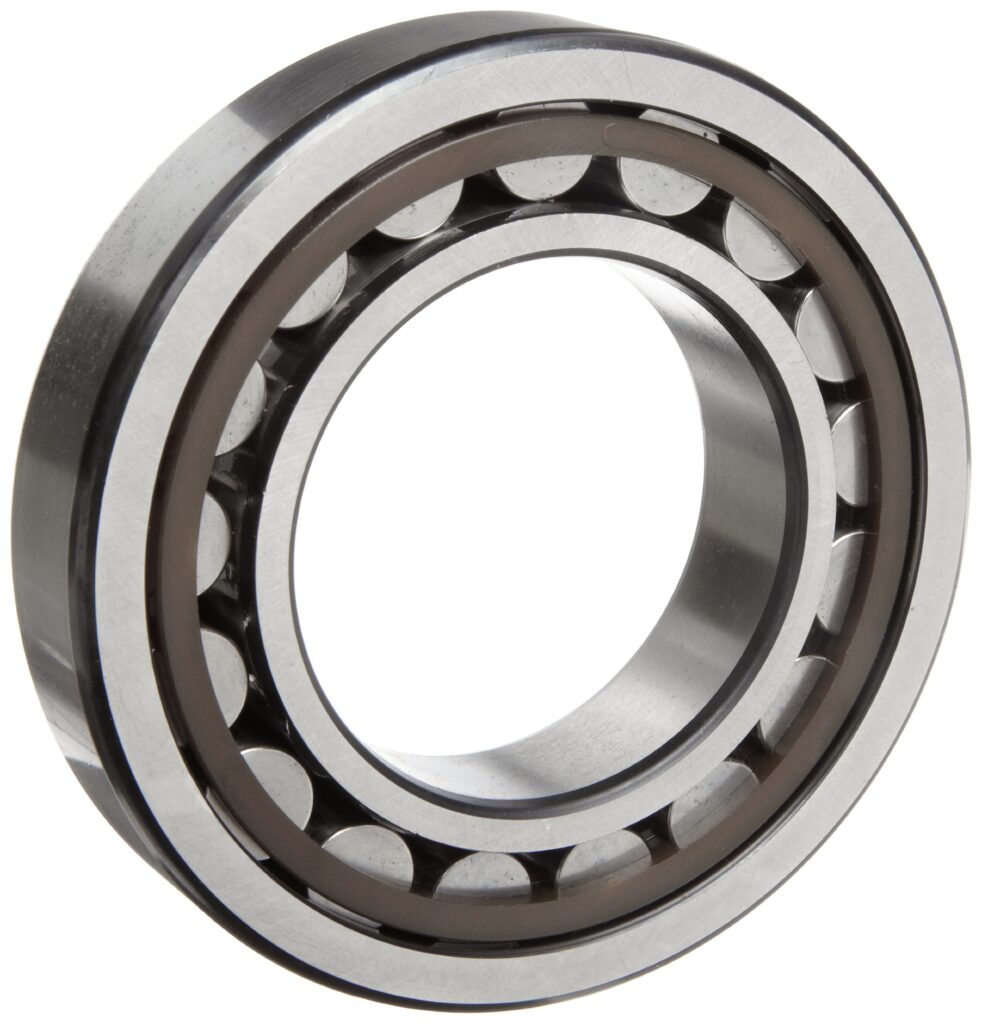Different Materials of Cylindrical Roller Bearings
Introduction
When it comes to bearings, one size most definitely does not fit all. As we know, the cylindrical roller bearings are generally composed of an outer ring, an inner ring, rolling elements and a cage. The material of your bearing’s raceway and cage can make a huge difference in its performance and longevity.
Whether you’re looking for something tough for heavy-duty equipment or lightweight for high-speed machinery, understanding the right materials is essential.
Bearing Materials: The Tough Stuff for Cylindrical Roller Bearings
Chrome Steel: The Go-To Choice
Chrome steel is one of the most commonly used materials for cylindrical roller bearings. As a result of its great strength and resistance to wear, it works best in situations that are pretty rough. Industrial machinery is mostly made of this material because it is cheap and can easily handle big loads and high speeds.
-
Best For: General industrial equipment such as motors, conveyors, and pumps.
-
Why It’s Great: Affordable, durable, and reliable in high-stress environments.
Common types of chrome steels used for cylindrical roller bearings include GCr15, 40Cr, and 100Cr6. GCr15, in particular, is the go-to material for high-quality bearings because of its excellent strength and fatigue resistance, which ensures longer service life.

Stainless Steel: The Rust Fighter for Cylindrical Roller Bearings
Stainless steel bearings excel in environments where corrosion is a concern. With excellent resistance to rust and the ability to withstand both high temperatures and chemicals, they’re the material of choice for industries like food processing, marine applications, and chemical processing. Stainless steel types like 304, 316, and 420 are commonly used in cylindrical roller bearings.
-
Best For: Wet or humid environments such as food processing and marine machinery.
-
Why It’s Great: High corrosion resistance, easy to clean, and low maintenance.
Stainless steel 316 and 420 are particularly suitable for applications that require both strength and wear resistance. They keep working well even in rough conditions, making them a safe choice for fields that need things to last a long time.
Ceramics: The High-Performance Option
Ceramic cylindrical roller bearings are the go-to choice for applications demanding exceptional performance. Materials like silicon nitride (Si3N4) and zirconia (ZrO2) are much better than regular steel. They are stronger, can be used at faster speeds, and don’t rust or wear down as quickly. Because of these features, ceramic bearings are perfect for high-precision uses like CNC machine spindles, aircraft parts, and other tough places where performance and durability are very important.
-
Best For: High-speed, high-precision applications like CNC spindles, aerospace, and demanding environments.
-
Why It’s Great: Faster, stiffer, less likely to wear down, and less likely to rust.

Cage Materials: Supporting Cylindrical Roller Bearings
Cages are essential for keeping the rolling elements separated, reducing friction, and providing support in cylindrical roller bearings. The material choice depends on factors like load, speed, and environmental conditions. Here are three popular cage materials:
Carbon Steel: Reliable and Strong
Carbon steel offers strength and affordability, and it is great for general-purpose and high-temperature applications.
-
Best For: General industrial use and high-temperature environments.
-
Why It’s Great: Strong, cost-effective, and reliable.
Brass: Heavy-Duty Performance
Brass cages excel in high-vibration, heavy-load environments, providing excellent shock absorption and durability.
-
Best For: High-vibration, heavy-duty equipment.
-
Why It’s Great: Tough, durable, and ideal for extreme conditions.

Nylon 6/6 and PEEK: Lightweight and Precise
Nylon 6/6, reinforced with glass fibers (GF 30%), is perfect for high-speed and precision machinery, while PEEK offers superior resistance to high temperatures and chemicals.
-
Best For: Precision and high-speed applications.
-
Why They’re Great: Lightweight, low friction, and highly durable.

Choosing the right cage material ensures smoother operation and longer life for your cylindrical roller bearings.
How to Choose the Right Material for Your Cylindrical Roller Bearings
Choosing the right bearing and cage materials depends on your specific needs. Here’s a simple guide to help you select the best material for your cylindrical roller bearings:
Know Your Environment
-Dry and normal conditions?
Chrome steel and carbon steel cages will do the job.
-Wet or humid environments?
Stainless steel bearings and cages are a must for corrosion resistance.
-High-speed machinery?
Go with nylon cages for smooth, quiet operation.
Consider Load and Vibration
-Heavy loads and impacts?
Choose case-hardened steel for raceways and brass or bronze for cages.
-Low-stress applications?
Nylon or carbon steel works well and saves cost.
Think Long-Term
-Cost vs. lifespan
While chrome steel is affordable upfront, stainless steel and case-hardened steel might save you money in harsh environments over time.
-Maintenance needs
Nylon and stainless steel generally require less upkeep than brass or carbon steel in certain conditions.
-Temperature Requirements
For high-temperature environments, nylon or stainless steel cages are your best options.
Conclusion
The material of your cylindrical roller bearing can make a big difference in how well your equipment works. Steel is great for everyday use, stainless steel for wet conditions, ceramic for speed, and brass for heavy vibrations.
At TFL Bearings, we offer a wide range of options to suit your needs. Ready to upgrade?
Contact us now and find the perfect bearing material today!
Popular Related Questions
What is the best material for cylindrical roller bearings?
It depends on the application. Steel is versatile, stainless steel resists rust, and ceramic works in high-speed environments.
Are ceramic bearings worth the cost?
Yes, for high-speed or extreme heat applications, their durability and low friction make them worth it.
Why use brass in roller bearings?
Brass reduces vibrations and withstands heavy wear, making it ideal for heavy-duty machines.
Can I use steel bearings in wet conditions?
Regular steel bearings may rust in wet conditions. Stainless steel is a better option.
How do I maintain cylindrical roller bearings?
Regular lubrication and keeping them clean can extend their lifespan. Check for unusual noise or heat during use.
